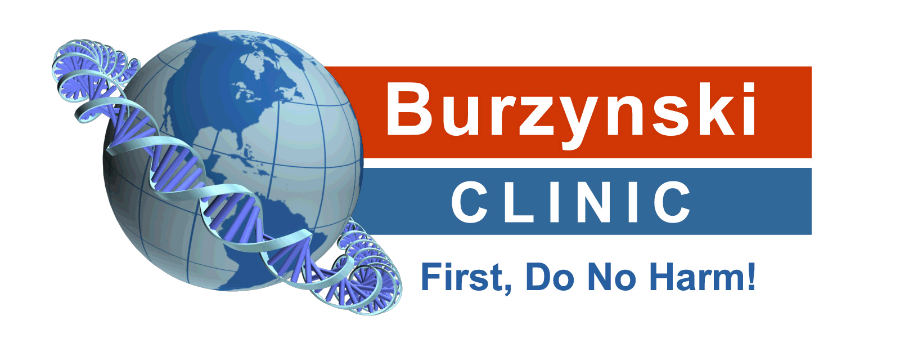Antineoplastons: Unlocking Your Immune Power Against Cancer at Burzynski Clinic
Tuesday, May 13, 2025 | By: Burzynski Clinic
Have you ever wondered how your body fights off diseases at a fundamental level? The immune system, armed with various components like antibodies, plays a crucial role in defending against illnesses, including cancer. One of the emerging areas of interest is the function of antineoplastons—peptides that are believed to enhance this immune response. In this blog post, we'll delve deep into how antineoplastons work alongside your body's immune system and their significance in cancer treatment. By the end of this post, you will gain a clearer understanding of these peptides and how they could represent a meaningful shift in cancer care.
Understanding the Immune System: A Brief Overview
The immune system is a complex network of cells, tissues, and organs that work tirelessly to protect against pathogens, often referred to as the body’s frontline defense. Key components include lymphocytes, macrophages, and antibodies which are produced in response to foreign invaders.
- Antibodies: Proteins generated by B-cells that recognize and neutralize foreign objects like bacteria and viruses.
- T-cells: Part of cell-mediated immunity, these white blood cells help kill infected host cells and activate other immune cells.
- Macrophages: These are larger immune cells that engulf and digest pathogens and cellular debris.
This complex system maintains homeostasis and prevents the development of tumors.
Introduction to Antineoplastons
Antineoplastons are naturally occurring peptides that have garnered attention for their potential in cancer therapy. Developed by Dr. Stanislaw Burzynski, these compounds are believed to play a crucial role in promoting the immune system's ability to recognize and combat cancer cells. They are derived from normal human proteins and are thought to restore the body's ability to produce substances similar to those that fight cancer.
These peptides operate within the framework of the immune system, potentially triggering a cellular response that enhances tumor suppression. The goal of antineoplaston therapy is to utilize the body’s capabilities to attack cancer at its core.
The Mechanism of Antineoplastons in Cancer Treatment
Often compared to other cancer therapies, antineoplastons are unique in their approach.
- Mechanistic Action: Antineoplastons work on a molecular level to influence the pathways associated with the immune response. They can activate various immune cells while simultaneously inhibiting pathways that lead to tumor growth. This dual action enhances the body's natural defense mechanisms.
- Immune Modulation: By modulating the immune response, antineoplastons can engage the body’s resources to recognize and eliminate malignant cells more effectively.
Current Research and Findings
While research on antineoplastons has been met with a mix of enthusiasm and skepticism, there is a growing body of evidence that supports their role in cancer treatment. Several clinical trials have been conducted to evaluate their efficacy:
- Patient Case Studies: Numerous patients report positive outcomes after undergoing treatment involving antineoplastons. Some have shown reductions in tumor size and improved quality of life.
- Preliminary Clinical Trials: Initial trials suggest that antineoplastons may be effective in managing specific types of cancers, particularly those that are resistant to conventional treatments.
Safety and Efficacy
One of the critical aspects of any treatment is its safety profile.
- Understanding Side Effects: Awareness of potential side effects is crucial. Patients may experience symptoms such as nausea, fatigue, or allergic reactions. Careful monitoring during treatment is advised.
- Potential for Integrated Treatment: Antineoplastons are often used in conjunction with traditional cancer therapies, such as chemotherapy and radiation, offering a holistic approach to cancer care.
Patient Testimonials: Real-Life Transformations
Describing the benefits of antineoplaston therapy can often feel clinical and distant. Here are compelling personal stories from individuals who have undergone treatment:
- Case Study 1: Successful Tumor Reduction: One patient, a 45-year-old woman diagnosed with a rare form of brain cancer, shared her experience of how antineoplaston therapy led to a significant shrinkage of her tumor after being unresponsive to other treatments.
- Case Study 2: Enhanced Quality of Life: Another individual spoke on how the therapy not only addressed their cancer but improved overall immune function, allowing them to enjoy life more fully.
Avoiding Common Misconceptions
There are numerous misconceptions surrounding antineoplastons.
- Myth vs. Reality: One common myth is that antineoplastons are a miracle cure for cancer. While they show promise, they should not replace standard cancer treatments but rather complement them.
- The Evidence-Based Approach: It’s essential to follow ongoing research and clinical trials to understand the full potential and limitations of antineoplaston therapy. Maintaining an evidence-based approach will ensure patients make informed decisions.
Steps Toward Incorporating Antineoplastons in Care
If you or a loved one is considering antineoplastons as part of your cancer treatment, here are actionable steps you can take:
1. Consult with Healthcare Providers: Always discuss with your oncologist or healthcare team about incorporating antineoplastons into your treatment plan.
2. Research Clinical Trials: Look for ongoing clinical trials to explore if you qualify for new studies that may offer access to these therapies.
3. Seek Support Networks: Joining support groups can provide additional information and encouragement from others who have gone through similar journeys.
Conclusion: Where Do We Go from Here?
In summary, antineoplastons are an exciting area of exploration in the realm of cancer treatment, potentially unlocking new possibilities. As we’ve seen, their role within the immune system to modulate responses presents an opportunity for many cancer patients seeking alternative treatment paths. While they do not replace existing therapies, they may indeed amplify the body's innate ability to heal. If you're considering accessing this innovative treatment option, contact us to explore how antineoplastons can fit into your personalized cancer care journey. Remember, your health is paramount, and exploring evidence-based options is essential for making informed decisions about your wellbeing. The key journey towards healing begins with understanding and proactive engagement, so let’s take that first step together!

